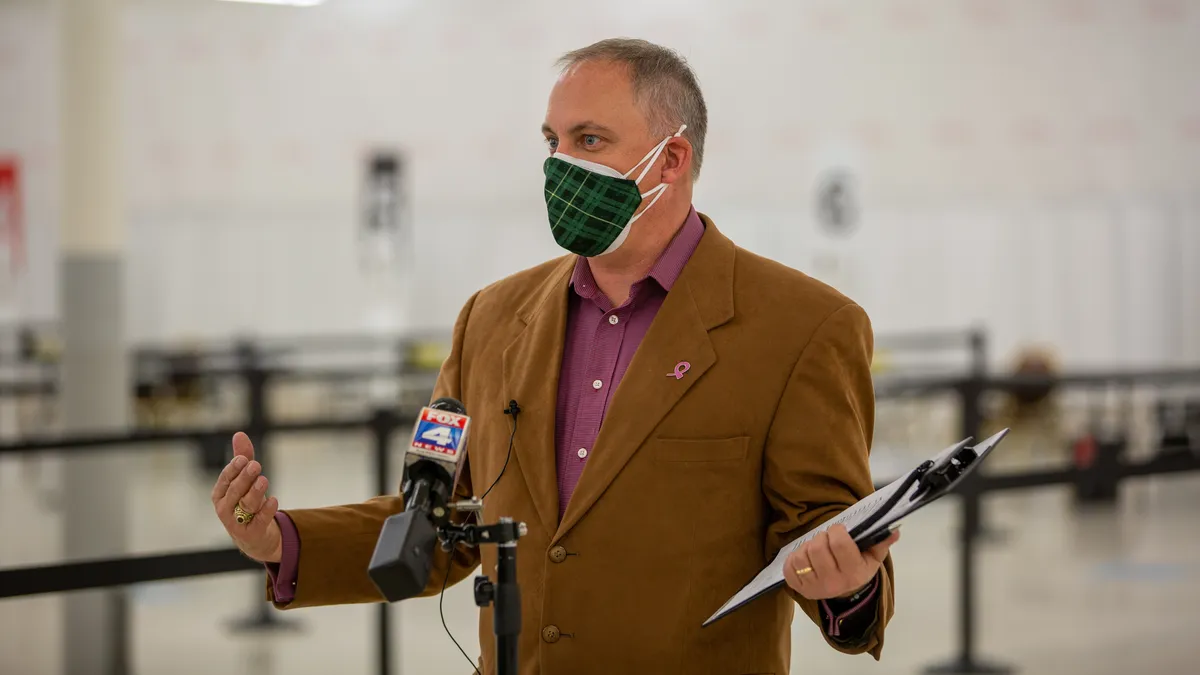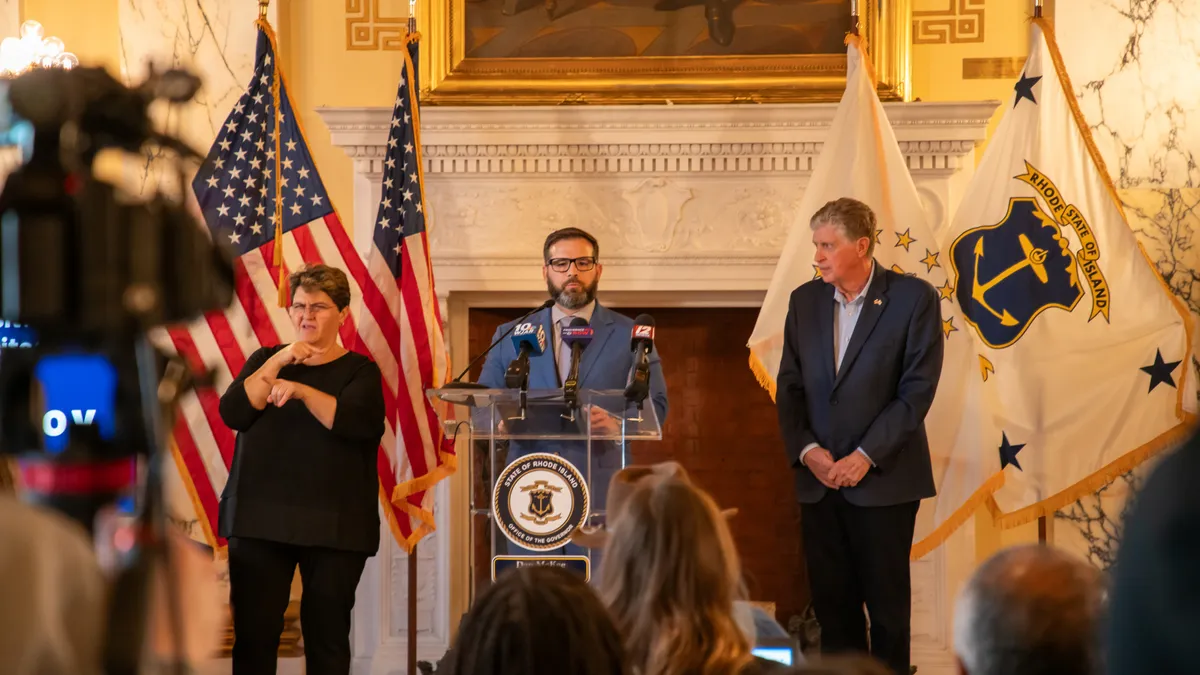A Kansas county is working to vaccinate more than 144,000 of its 166,000 residents from COVID-19 to reach herd immunity — and it has tapped a smart city supremo to get the job done.
Smart city consultant and former Kansas City, MO, Chief Innovation Officer Bob Bennett took a leap over the river to serve in a new role as the Vaccine Operations Director for the Unified Government of Wyandotte County and Kansas City, KS. Since December, he and his consulting group B2 Civic Solutions have utilized technology-driven distribution; embraced public-private partnerships (P3s) to open mass vaccination centers; and leveraged strong communications with the state government to handle supply issues.
"While [I was] in Kansas City (MO), we were focused on gaining efficiencies, and we were dedicated to the proposition that we conducted and managed our city evolution with an eye toward equity," Bennett said. "Both that efficiency and equity argument are far and away some of the more tricky parts of the vaccine distribution effort."
To distribute vaccinations as quickly as possible, the unified government set up two mass vaccination centers: one at a former Kmart and another at a former Best Buy store. To open up the former Kmart as a vaccination site, the property owner got a tax abatement deal on the 133,000-square-foot space, which had been vacant for around two years. Bennett said building trust between the government and property owners has been key in getting these sites open and functioning.
The county is planning a third site at the Kansas National Guard Armory.
Bennett and local officials have also explored a number of tech-driven ways to support residents as they book vaccination appointments, from chatbots driven by artificial intelligence (AI) to more traditional text messaging services. As cities increasingly embrace technology to answer residents' questions and provide them with assistance, especially during the pandemic, Bennett said the public health sector should follow suit.
"Longer term, I do see that health departments are going to have to evolve, much like many of our other smart city efforts caused trash collection, traffic management, water management, to evolve, and technology is going to be an integral part of that," Bennett said. "I think the lessons that we learn today are going to help redefine how residents expect to be served and the level of expertise they expect to be included inside their local health department."
Bennett said the Wyandotte government is targeting 25,000 vaccinations per week, though that number is dependent on supply from the state. Supply has at times been patchy nationwide, meaning local jurisdictions are oversubscribed for vaccination appointments.
But while some city-state relationships have been strained throughout the pandemic, Bennett said the State of Kansas has maintained open lines of communication and has been quick to outline any issues with vaccine distribution so local health departments can react quickly.
That, combined with prioritizing health concerns in Wyandotte during the pandemic, has taken a great deal of political will, Bennett said, when it might have been easy to focus on other issues. It meant when the county received $37 million in emergency funds from the CARES Act, $11 million went into the health department's coffers to help with mitigation and vaccination.
"Public health has not had this amount of light shone upon it."

Bob Bennett
Vaccine Operations Director, Unified Government of Wyandotte County and Kansas City, KS.
"It takes a certain amount of political will to prioritize the vaccine effort above some of the other things that a local government can do, and quite frankly, is obligated to when one considers public safety or when one considers the other amenities that cities and residents desperately want and require," Bennett said.
This approach is akin to West Virginia's statewide vaccination effort, which has won plaudits from across the political spectrum for its efficient, centralized registration system.
In previous public remarks, Bennett has warned that cities must embrace smart technology or risk being left behind, and he echoed that warning for local health departments, which have been stretched during the pandemic. With municipal budgets likely to be under pressure for several years as cities count the costs of the pandemic, efficiencies and new ways of operating must be found, Bennett said.
"The fact of the matter is, you've got a lot of dedicated people in this effort, many of whom are dealing with a crisis truly for the first time," he said. "Public health has not had this amount of light shone upon it."




















